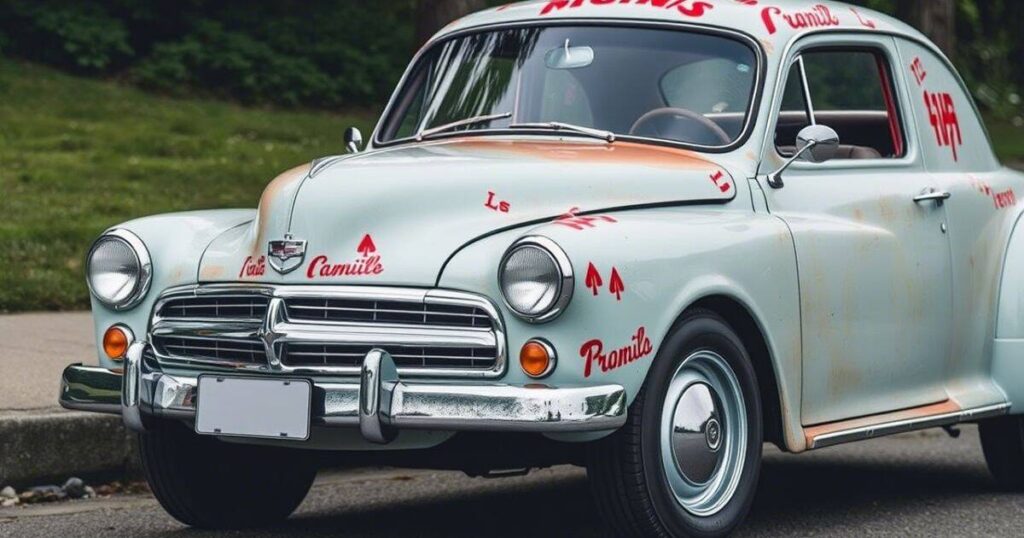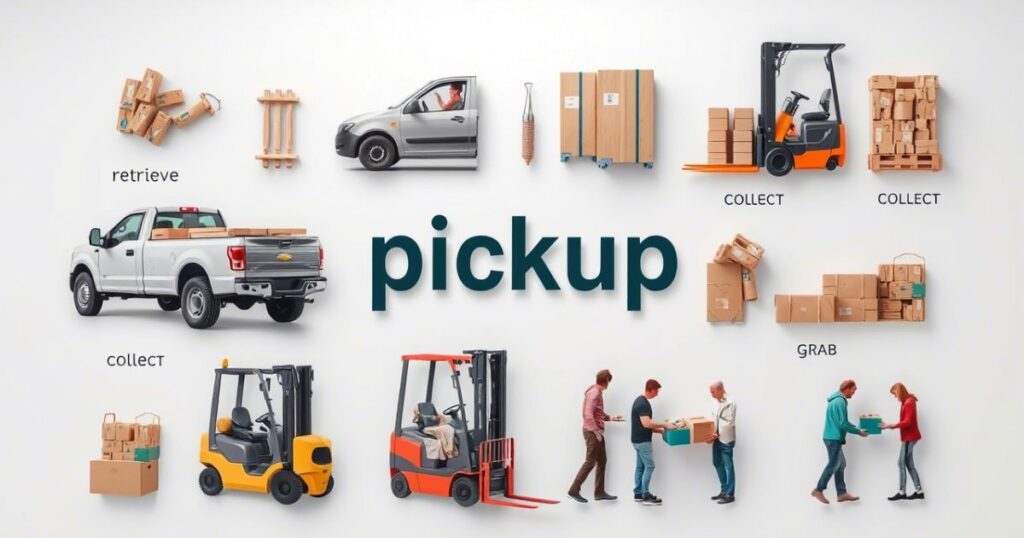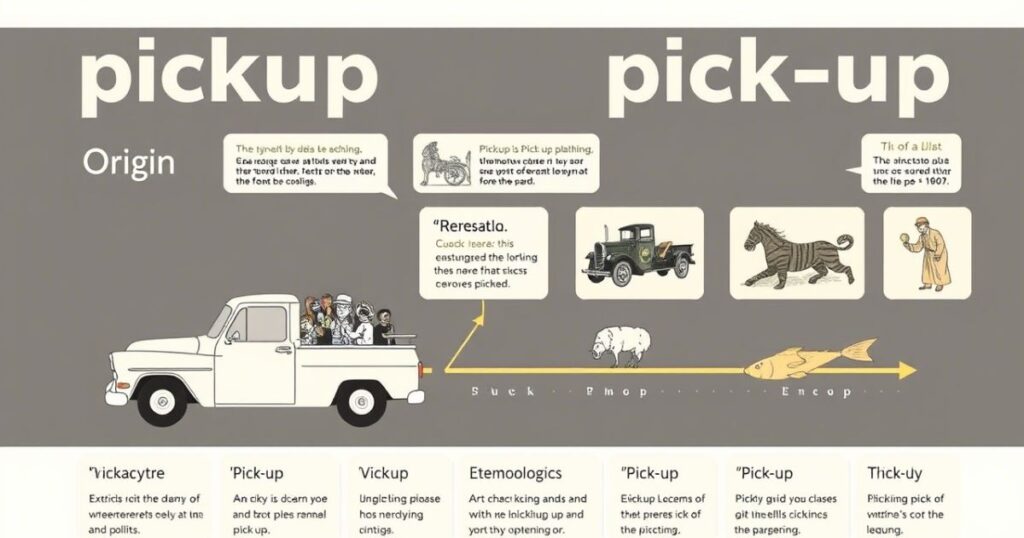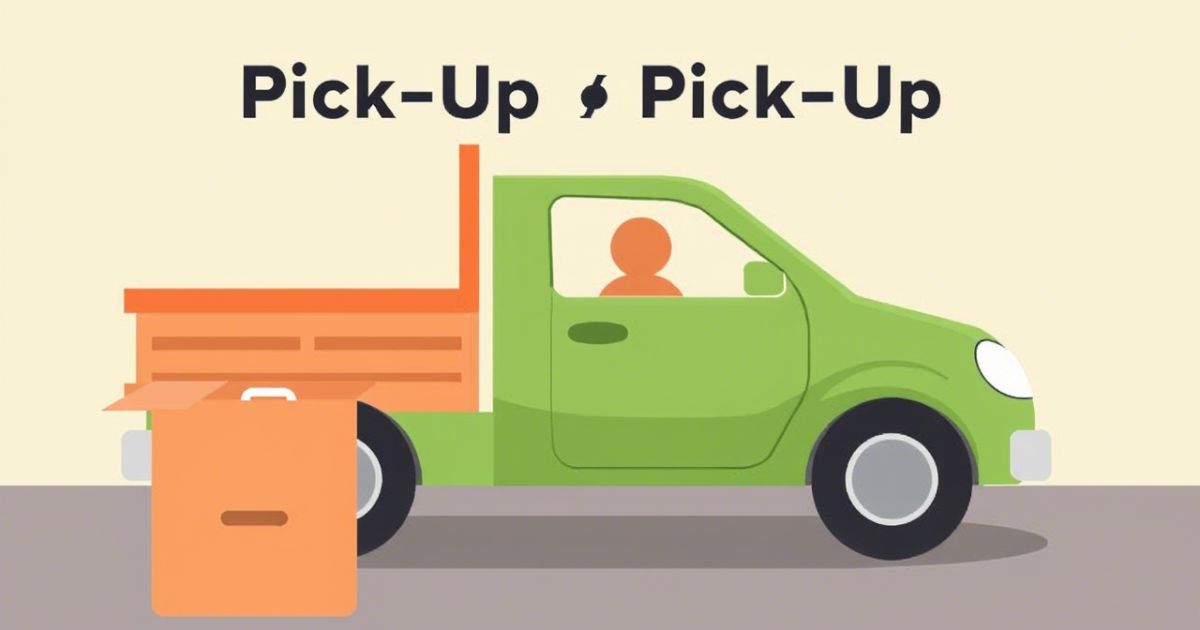When it comes to writing, many people get confused about whether to use Pick-Up, Pick Up or Pickup. You’ve probably asked yourself, “Is pick up hyphenated?” or wondered about the difference between pickup vs pick up. The truth is, both forms are correct, but they’re used in different ways. Choosing the right one depends on how you’re using it in a sentence.
In this guide, we’ll break down the difference between Pick-Up, Pick Up or Pickup, so you’ll never second-guess again. We’ll explore whether Pick-Up, Pick Up or Pickup fits best in everyday writing, explain when pickup vs pick up matters most, and answer the common question: Is pick up hyphenated? Whether you’re writing a quick note or a professional email, knowing when to use Pick-Up, Pick Up or Pickup can make your message clear. Let’s settle the pick up vs pickup debate once and for all.
Why is There Confusion?
The confusion surrounding “Pick-Up, Pick Up or Pickup” often arises because these terms are used interchangeably in everyday conversation. However, their meanings and applications can differ depending on the context. Many people are unaware of the subtle distinctions between the two, leading to misunderstandings in both casual and formal writing. This confusion is also heightened by evolving language trends, which blur the lines between what is considered a correct usage and a more casual, modern interpretation.
Language experts often stress the importance of understanding the difference between these terms, especially when clarity is crucial. While both terms are commonly used in various scenarios, the misuse of “” and “pickup” can lead to ambiguity, especially in written communication. Understanding the historical background and intended use for each can help individuals choose the most appropriate term.
What is a “”?
A “” is a term often used in relation to objects or people being collected or gathered. It is commonly seen in contexts such as transportation or logistics, where goods or people are “picked up” from one location and moved to another. For instance, a ” truck” refers to a vehicle designed to carry goods, while a ” time” refers to the scheduled time when someone or something will be collected.
In casual conversation, “” can also refer to a brief encounter or flirtation, often implying a brief and spontaneous interaction. This usage typically appears in social settings or dating scenarios. However, the specific meaning of “” depends largely on the context in which it is used.
What Does the Word “Pick Up” Mean?

The phrase “pick up” refers to the act of gathering something or someone, often from a location. It can also describe the process of acquiring knowledge or skills, such as “picking up a new hobby” or “picking up on a trend.” In the context of transportation, “pick up” refers to the action of collecting someone, as in “I’ll pick you up at 5 PM.”
Additionally, “pick up” can be used to describe an improvement in something, like “the pace of the game picking up.” Its versatility across various contexts makes it a common expression in everyday language, whether it’s referring to transportation, skills, or changes in progress.
What is a “Pickup”?
“Pickup” is a noun that refers to the act of gathering something or someone, and it’s often used to describe the vehicle used for this purpose. For example, a “pickup truck” is a vehicle designed to transport goods or materials. The term “pickup” can also refer to an informal meeting, especially in dating contexts, where people come together for a brief interaction.
The word “pickup” is used in various fields such as sports, where it describes a method of gathering or retrieving the ball, and in the music industry, where it can refer to a brief period of improvisation or practice. The term’s usage is consistent in these contexts, with “pickup” being a standard noun form.
Related Guide:
Quit vs Resign: Clear Up the Confusion Once and For All
Which One Should You Use?
Choosing between “” and “Pick-Up, Pick Up or Pickup” depends on the context and the grammatical role the term is playing. In general, “” with a hyphen is used when describing an action, especially when it functions as a noun or adjective (e.g., ” game,” ” truck”). Meanwhile, “pickup” without a hyphen is more common when referring to a specific object or thing (e.g., “pickup point,” “pickup basketball”).
To avoid confusion, it’s important to consider whether the term is acting as a noun or a compound adjective. In cases where clarity is essential, particularly in formal writing, opting for the hyphenated “” when referring to actions is generally preferred.
| Aspect | Pick Up | Pickup | |
| Part of Speech | Phrasal verb | Noun | Noun / Adjective (less common) |
| Usage | Action or process of collecting or lifting | A thing or event related to collecting or gathering | Often used as an adjective or noun in compound terms |
| Examples | “I’ll pick up the kids after work.” | “He drives a red pickup.” | “We had a game at the park.” |
| Context | Conversation, instructions, directions | Vehicles, logistics, informal events | Sports, dating, informal writing |
| Hyphenation Rule | No hyphen; standard phrasal verb | One word; compound noun | Hyphenated; older or less formal usage |
| Modern Preference | Common and widely accepted | Standard in American English | Becoming less common in formal writing |
Examples in Context
- I’ll pick up some coffee on my way to work.
- She picked up a few words of French during her vacation.
- Can you pick up the kids from school this afternoon?
- Sales began to pick up after the holiday season.
- He stopped to pick up the pen he dropped.
- Let’s pick up where we left off in yesterday’s meeting.
- I need to pick up my dry cleaning before 6 PM.
- He quickly picked up on her sarcasm.
- He loaded the tools into the back of his pickup.
- The hotel shuttle offers pickup service from the airport.
- There’s a pickup location near the grocery store.
- She scheduled a furniture pickup for Saturday morning.
- We arranged a pickup time for the package.
- His guitar has a built-in pickup for amplification.
- They played a spontaneous basketball game at the park.
- That was a smooth line, but it didn’t work!
Synonyms and Similar Terms to “Pickup” or “” and “Pick Up”

Although “,” Pick-Up, Pick Up or Pickup can overlap in meaning, their synonyms vary depending on how they’re used, as a noun, adjective, or phrasal verb. Here’s a clear separation of both categories:
Synonyms and Similar Terms for “Pickup” or ““
- Collection Point
Collection point refers to a location where items or people are gathered or picked up. “The delivery driver arrived at the collection point right on time.” - Curbside Service
Curbside service is when items or orders are brought directly to a vehicle, common in food and retail. “We used curbside service to avoid waiting inside.” - Light Truck
Light truck is a vehicle similar to a pickup, used for small hauls or work. “He drove a light truck loaded with tools.” - Utility Vehicle
Utility vehicle describes a functional vehicle designed for specific tasks, often off-road or industrial. “The utility vehicle was perfect for navigating the rough terrain.” - Drop-off Area
Drop-off area is the opposite of a pickup zone, where people or items are left. “Meet me at the drop-off area near the gate.” - Scrimmage
Scrimmage is a casual or practice match, used in sports terminology. “The team held a quick scrimmage before the main game.” - Hand-off
Hand-off means passing something from one person to another, useful in sports and logistics. “There was a smooth hand-off during the relay race.” - Meet-up Spot
Meet-up spot refers to a place where people gather or connect. “We chose a busy café as our meet-up spot.”
Synonyms and Similar Terms for “Pick Up”
- Lift
Lift means to raise or elevate something physically. It can also be metaphorical. “He helped lift the heavy box onto the shelf.” - Resume
Resume refers to continuing something after a pause. It often applies to conversations or tasks. “Let’s resume our discussion after lunch.” - Increase
Increase refers to rising numbers or levels, often used with speed or activity. “The pace began to increase during the second half.” - Improve
Improve means to get better or make progress. It’s often interchangeable with “pick up” in emotional or performance contexts. “Her mood started to improve after the call.” - Learn
Learn means acquiring knowledge or skills, similar to picking up a new hobby or language. “He learned to cook by watching videos.” - Catch On
Catch on means to understand or grasp something quickly. “She caught on to the rules within minutes.” - Acquire
Acquire refers to gaining something over time, often through effort or exposure. “He acquired a taste for jazz music while abroad.” - Reclaim
Reclaim means to take back or recover something that was lost or left. “She reclaimed her luggage at the baggage carousel.”
Origins of “Pickup” or “” and “Pick Up”

The expression “pick up” originated from Middle English, combining picken (meaning to seize or gather) with the directional preposition “up.” Together, the phrase originally described a physical action, lifting something from a lower position. Over time, its usage expanded into more abstract meanings like “learn,” “improve,” or “collect,” depending on the context.
As the English language evolved, the noun form “pickup” (and its hyphenated twin “”) developed naturally from the verb phrase. By the early 20th century, “pickup” was being used to name things like trucks, casual sports games, and even audio devices. This noun usage reflected how language often shifts over time from actions to objects associated with those actions.
Origins of “Pickup” or “”
The noun “pickup” first appeared in American English in the early 1900s, often related to vehicles. It described light trucks that were easy to “pick up and drive.” Later, it expanded into sports, where a “pickup game” referred to an informal match assembled quickly without scheduled teams.
The hyphenated version “” was more common in older writings or British English, particularly before the modern rules of compound nouns became more standardized. Today, “pickup” without the hyphen is more accepted in U.S. English, especially when referring to objects, vehicles, or informal activities.
Origins of “Pick Up”
“Pick up” as a phrasal verb has been around since the 14th century, with literal meanings like lifting or collecting items. It was a straightforward action in early texts, such as “to pick up stones” or “pick up a fallen item.” The pairing of a verb with a preposition like “up” helped give direction and emphasis to the motion.
Over time, the phrase developed dozens of meanings. By the 1600s and 1700s, people used “pick up” to describe learning something quickly, recovering from illness, or even meeting someone romantically. The versatility of “pick up” shows how phrasal verbs evolve to reflect everyday life in language.
FAQ’s
What’s the difference between Pick Up and Pickup?
The main difference is whether it’s a noun or a verb. Pick-Up, Pick Up or Pickup are used differently in various contexts. Check the surrounding words to decide.
Is Pick Up hyphenated in all cases?
In most modern uses, the term Pick-Up, Pick Up or Pickup isn’t hyphenated. It only depends on how it’s being used in a sentence.
When should I use Pickup instead of Pick Up?
Use Pick-Up, Pick Up or Pickup as a noun or adjective for things like trucks or games. It’s more common in casual contexts than the verb form.
Can I use Pick-Up, Pick Up or Pickup interchangeably?
No, Pick Up and Pickup aren’t interchangeable in all cases. Context will dictate whether you need the verb form or the noun/adjective form.
Is there a rule for Pick Up vs Pickup?
The rule comes down to usage. Pick-Up, Pick Up or Pickup is based on the context, whether it’s describing an action or an object.
Conclusion
Understanding the difference between Pick-Up, Pick Up or Pickup doesn’t have to be confusing. Whether you’re talking about a truck, a casual game, or grabbing groceries, knowing when to use pickup or pick up makes your writing smoother. Think about the context. If it’s a noun or adjective, pickup usually fits. If it’s a verb, you’ll want to use pick up.
So, when wondering is pick up hyphenated, the answer is mostly no in modern usage. But learning the difference between pickup vs pick up can save you from awkward mistakes. Whether you’re comparing pick up vs pickup or just unsure which to use, this guide should help. Keep this simple rule in mind whenever you ask yourself to Pick-Up, Pick Up or Pickup. With a little practice, you’ll never mix up Pick-Up, Pick Up or Pickup again. Writing clearly just got easier.

Ember Rose is a dedicated administrator with 4 years of experience in efficient operations management and team leadership. Skilled in streamlining workflows and enhancing productivity.

